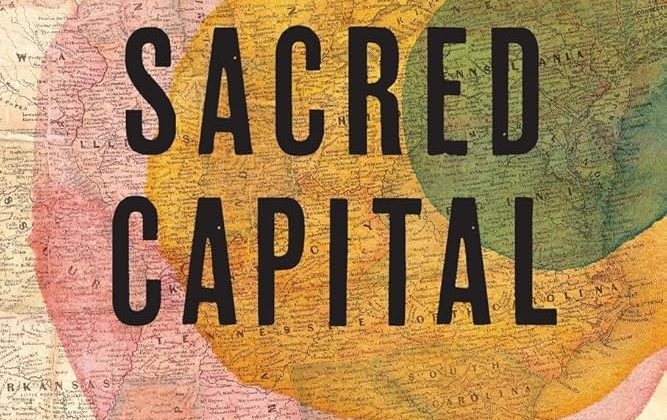

Hunter Price is Associate Professor of History at Western Washington University. This interview is based on his new book, Sacred Capital: Methodism and Settler Colonialism in the Empire of Liberty (University of Virginia Press, 2024).
JF: What led you to write Sacred Capital?
HP: Sacred Capital is my attempt to explain just how crucial evangelical Christianity was to American history in the years after the American Revolution–not so much in the ways that have long grabbed people’s attention such as the spectacles of sight and sound at revival meetings but in the subtle ways that humans thread religion into the fabric of their everyday lives.
JF: In 2 sentences, what is the argument Sacred Capital?
HP: In Sacred Capital, I argue that Methodists harnessed the connections within their organization’s social structure and turned them to their advantage, acquiring land, employment, and spouses among other things to find stability and prosperity in the early American west. Because the Methodist Episcopal Church was among the largest organizations of any kind in the new United States, these ordinary practices of building social capital were a major force in the extension of white American settler society throughout the Mississippi River valley.
JF: Why do we need to read Sacred Capital?
HP: My hope is that readers will take at least two things from the book. One, Methodists left a profound mark on the shape of American society; their creative uses of networks within a national institution looked ordinary at the time but were of substantial importance when viewed historically. Two, American Methodists regularly identified as pilgrims, internalizing Christian metaphors of transcending this world on the journey to everlasting life, but they acted as settlers. They used their worldly connections to advance themselves in this life, and so learning about the Methodists helps us to think about the tensions between what humans say and what they do.
JF: Why and when did you become an American historian?
HP: That choice was inspired by some combination of trekking through the woods as a kid with my genealogist grandfather (he let me carry the machete) and learning to think like a historian in graduate school from excellent mentors at Ohio State University: Alan Gallay, John Brooke, and Randolph Roth.
JF: What is your next project?
HP: I’m hard at work on a history of the LeConte family of Georgia, a story that stretches from the rice swamps of the South to the mountains of California. The LeContes helped establish the University of California, Berkeley, as well as the Sierra Club, and I hope to connect the dots between the LeConte family, the people they enslaved, and the contributions of both groups to American science before and after the Civil War.
JF: Thanks, Hunter!